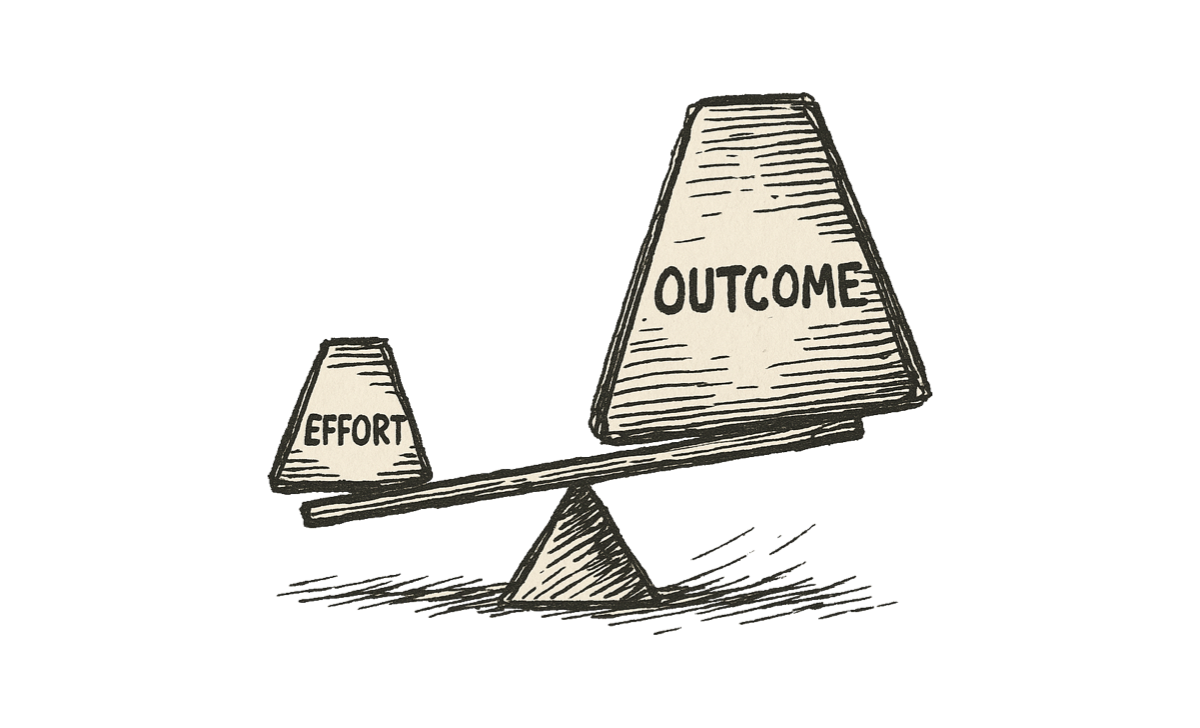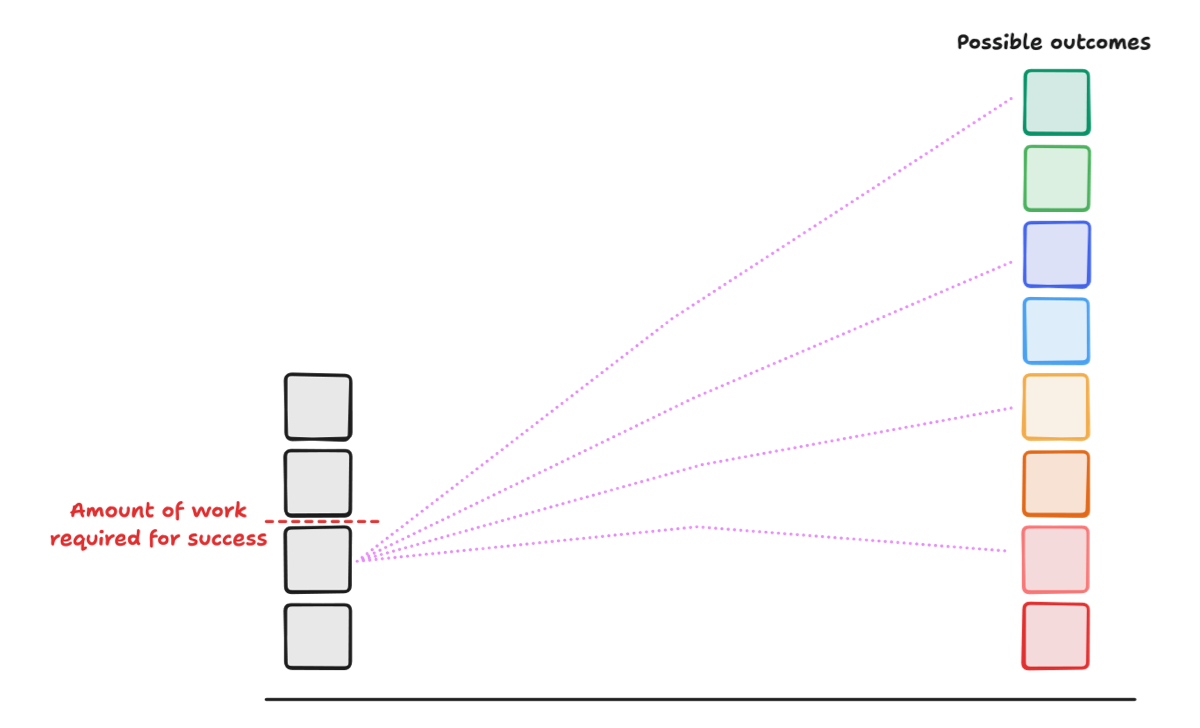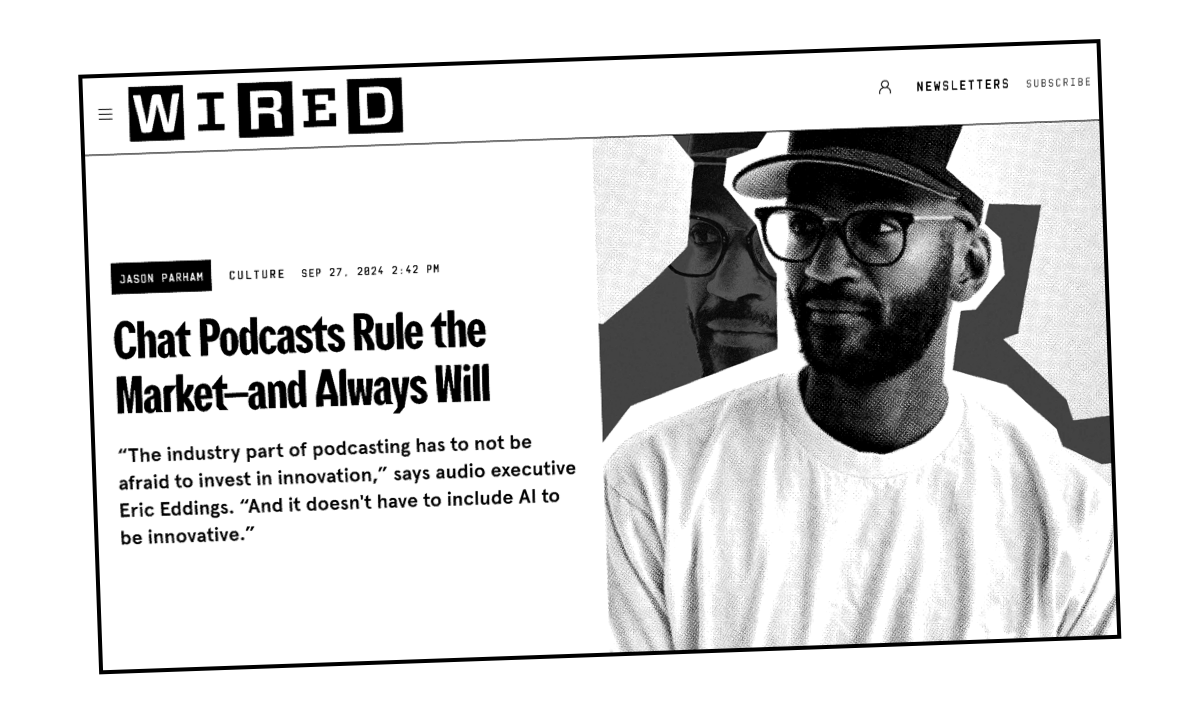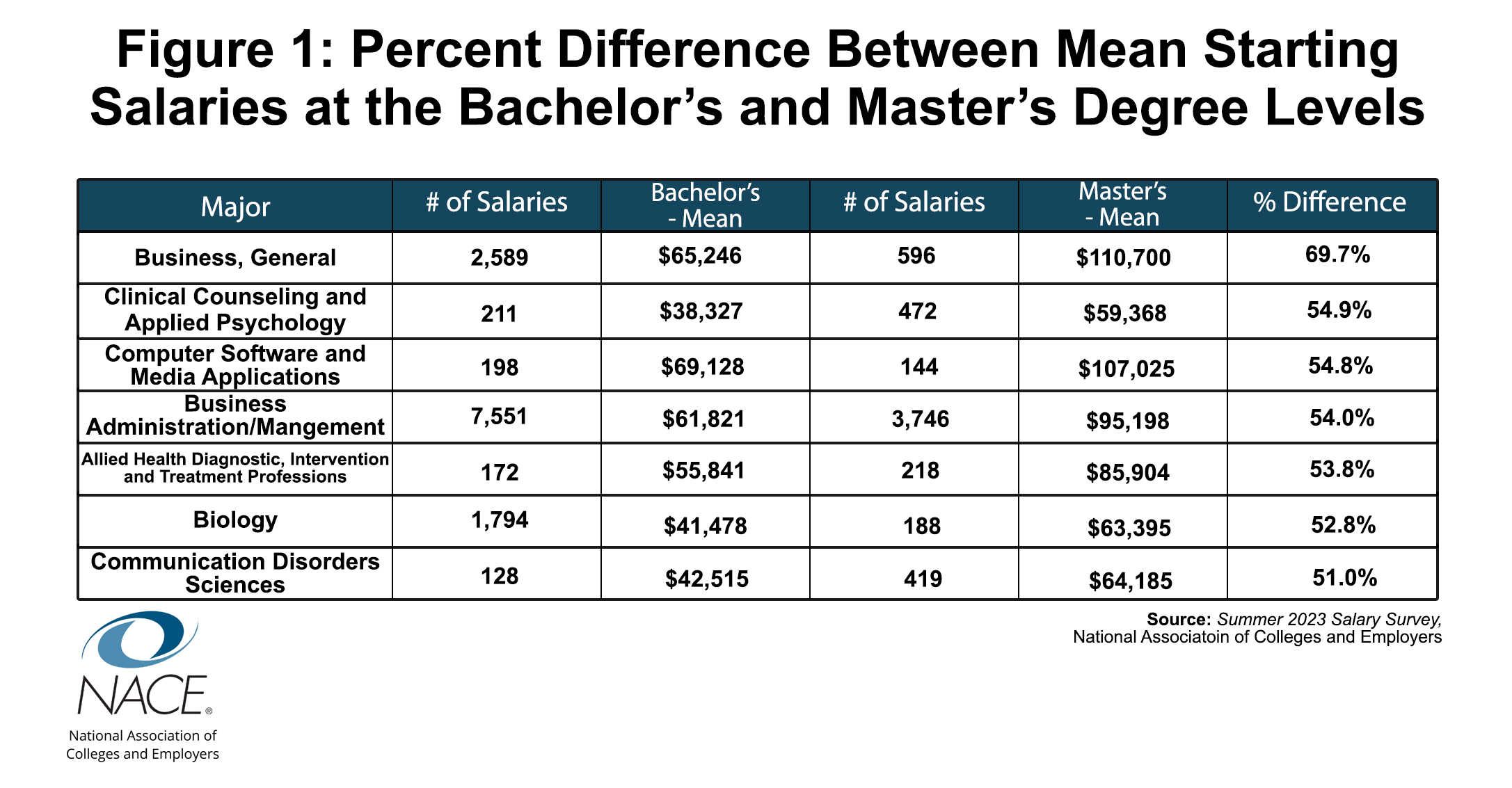Effort vs Outcomes
There's a strange relationship between the effort you put into something and the outcome you get out of it.
For example, you might work on a project for weeks and months, only to have it receive a tepid response. Then, a different piece of work (that you whipped together in an afternoon) takes off and gets a much bigger reaction.
Anything worth doing will require a fair amount of effort and work. But it's also possible to invest a fair amount of time into something where the outcome is mediocre.
Examples across industries
Podcasting
The podcast industry is grappling with this right now. Following the 2014 release of the crime podcast Serial, the sector began investing substantial amounts of money in highly produced, well-researched narrative shows.
However, 10 years later, executives at media companies have realized they can invest in cheaper celebrity-driven interview shows and earn significantly more ad revenue. Smaller inputs, bigger outputs; which format do you think they’re going to choose?
College degrees and salaries
Here’s a career and education example. A business degree and a counseling degree both take four years, but result in mean starting salaries of $65K vs. $38K. Same input (4 years), asymmetric output.
Advice for entrepreneurs
In business, good outcomes are almost always asymmetric with their inputs. If you invest $1 and only make $1 back, you haven't made a profit. The goal is to invest one dollar and get back five, ten, or fifty.
Anyone who's ever tried to start a company knows this: regardless of the outcome, it's going to take a ton of time and money to get it off the ground. In fact, the same time and money invested in one idea could produce wildly better results if it were invested in a different idea.
Our job, as builders, is to be aware that this effort-outcome disparity exists and act when our inputs aren’t producing the right results.
Here’s how I’m thinking about it.
When considering new ideas:
First, I treat new ideas as bets. And I ask myself:
How much is this bet going to cost me?
What is a foreseeable outcome for this bet?
How likely is this to happen?
When evaluating existing businesses:
Second, for my existing business, I try to reflect and evaluate regularly:
Where are we currently investing time and resources?
Are those inputs producing proportional outputs?
If not, what other bet(s) should we be considering?
As someone who primarily builds software, I’m increasingly taking time to reflect on what we’ve invested in and what outcomes those investments have achieved. Sometimes, you work really hard on a feature that doesn't get used or loses money. Other times, you release stuff that helps you hold your ground against competitors, but doesn't meaningfully change your trajectory. And, a select few of your efforts will produce asymmetrically better outcomes.
I think the key here is to consider your bets carefully. Some will convert your inputs into high-multiple outcomes. However, be wary of continually investing resources into paths that are unlikely to succeed. Your goal is to work on projects that compound your effort.
Cheers,
Justin Jackson
Connect with me on:
🦋 Bluesky
💼 LinkedIn
🐘 Mastodon
🧵 Threads



